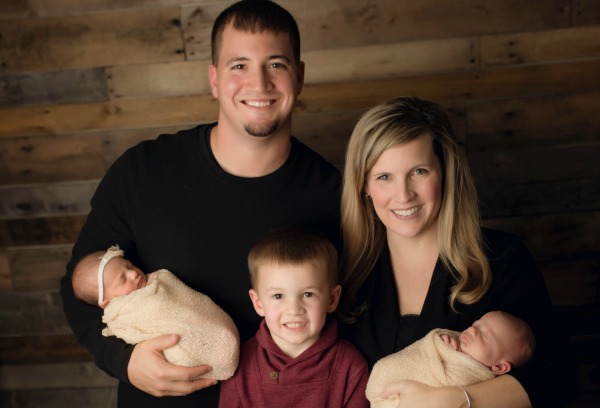AHN’s Jefferson Hospital Is First in Western PA to Earn Keystone 10 Designation for Breastfeeding Support
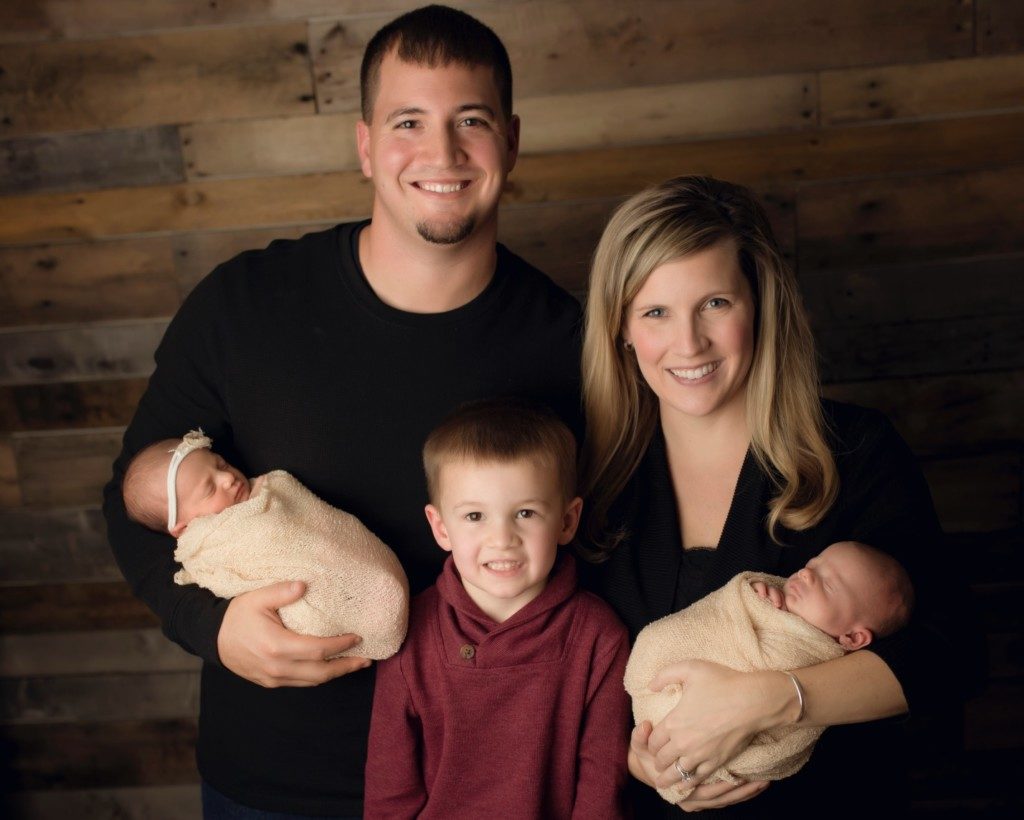
Melissa Medsger could just picture it: A little more than a month from now, she’d be holding her newborn twins, Amelia and Elijah. And she’d begin breastfeeding them within minutes of their birth.
Melissa had rehearsed that day in her head a million times. Amelia would arrive first, according to Melissa’s most recent ultrasound. And then Elijah, undoubtedly fueling the twins’ future debates about which one is older and wiser.
But that idyllic vision — including her breastfeeding plans — took a detour when Melissa was diagnosed with cholestasis. It’s an uncommon liver disease that only happens in pregnancy. And women carrying multiple babies are at higher risk.
“You can have liver damage, and that can affect your unborn baby,” Melissa said. “So I had to be induced about five weeks early.”
On Oct. 25, 2017, Amelia indeed came first and was born vaginally at Allegheny Health Network’s (AHN) Jefferson Hospital in Pittsburgh’s South Hills. She weighed 5 pounds, 3 ounces, and was admitted to Jefferson’s Level II Neonatal Intensive Care Unit (NICU).
But because he was in a breech position, Elijah was born via cesarean section (C-section). And because he was having difficulty breathing, the 5-pound, 4-ounce, Elijah was flown by helicopter from Jefferson Hospital to the Level III NICU at AHN’s West Penn Hospital in Pittsburgh.
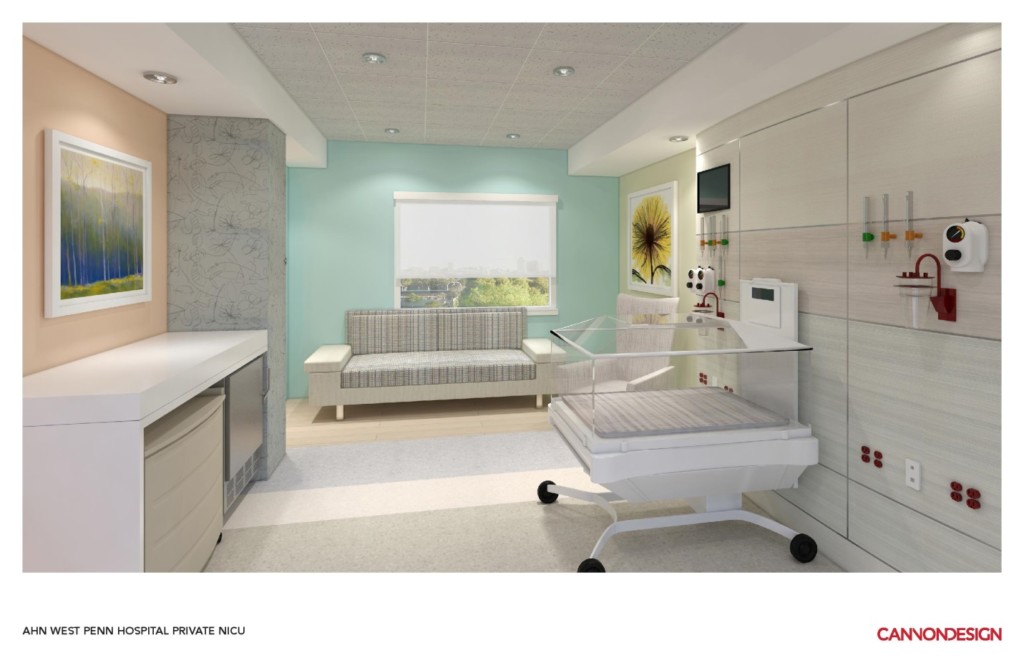
With one baby at Jefferson and one at West Penn, Melissa wondered how and when she’d manage to bond with and breastfeed both children.
But long before she arrived for delivery, Melissa knew she was in capable hands at Jefferson Hospital.
A Leader in Breastfeeding Advocacy
That’s because Melissa is a lead physician assistant at the hospital’s birthing center. So she’s well aware of the comprehensive breastfeeding education and training that Jefferson Hospital offers to mothers.
In fact, this past April, Jefferson became the first hospital in western Pennsylvania to earn the Pennsylvania Department of Health’s Keystone 10 designation for breastfeeding advocacy and support.
Keystone 10 recognition means a hospital follows 10 effective practices (see sidebar story) that put moms and babies on the path to successful breastfeeding.
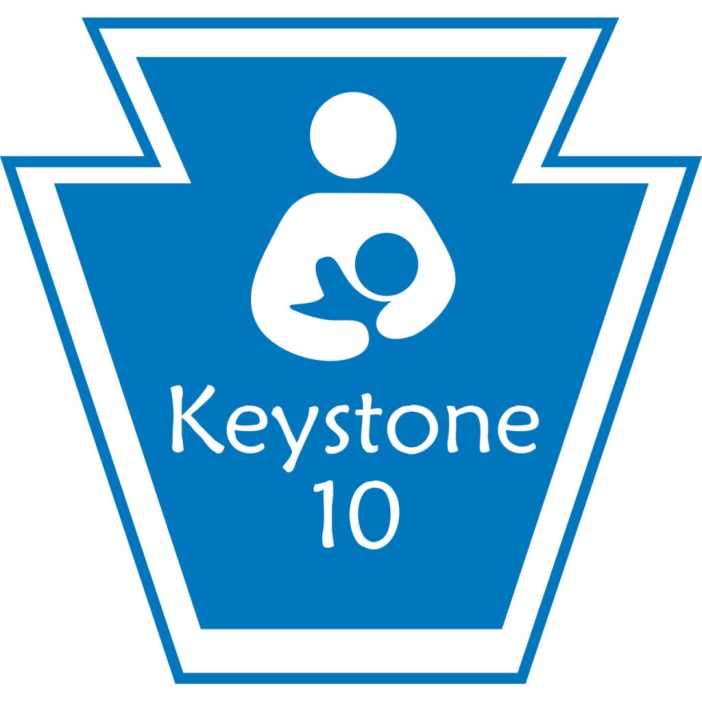
“One of these practices is having all of our maternity nurses, doctors, midwives, and other patient care staff complete 20 hours of breastfeeding classroom and skills training,” said Mary Kish, a certified registered nurse practitioner in Jefferson’s Level II NICU who led the hospital’s Keystone 10 efforts. “Another practice is helping a mom to start breastfeeding within one hour of their baby’s arrival to ensure that the baby is latching properly and all is well.”
For mothers who choose to breastfeed, a Keystone 10 hospital offers a solid foundation of expertise and instruction to help them succeed, Kish said.
“Breastfeeding can indeed be challenging for some women,” said Kish, one of seven Jefferson staff members who are certified through the International Board of Certified Lactation Consultants. “So it’s important that we give them all of the help and encouragement we possibly can.”
Support to Overcome Challenges
Like all expectant and new mothers at Jefferson, Melissa received breastfeeding support and supervision continuously throughout her course of care. Moms receive education and instruction during prenatal doctor or midwife appointments, prenatal classes, right before and after delivery, and at discharge.
Plus, women get connected to breastfeeding support groups for ongoing help.
Melissa had breastfeeding experience with her son, Maximus, now 4 years old. But she hadn’t expected the challenge of breastfeeding two newborns who were miles apart — and both in NICUs.
However, with encouragement from Jefferson’s doctors, nurses, and lactation consultants, Melissa began to successfully breastfeed Amelia in the hospital’s NICU amid the maze of wires and monitors.
“Amelia spent two nights in Jefferson’s NICU, and then she was able to room with me on the third night,” Melissa said. “We got to go home the next day.”
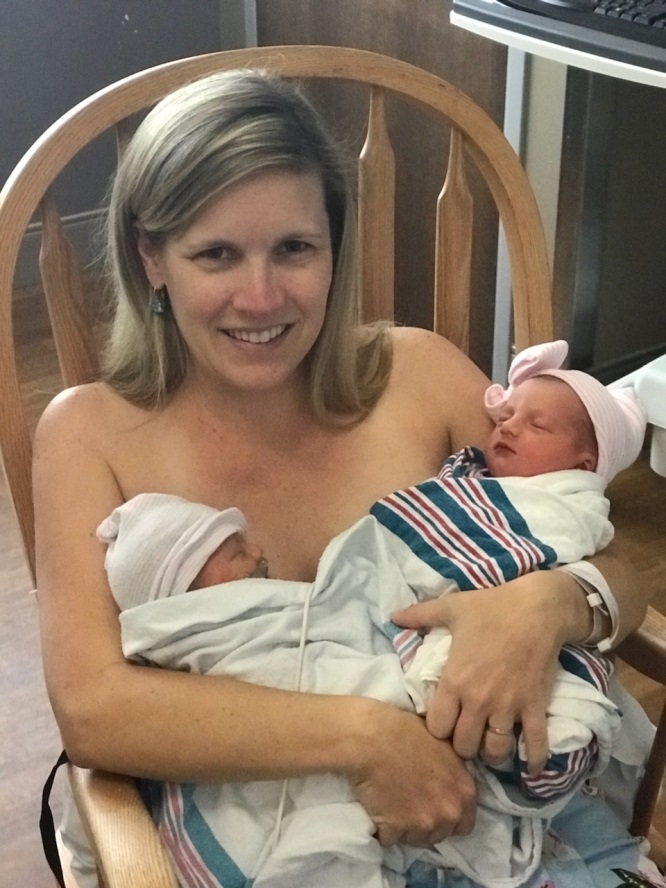
But across town, Elijah needed more time to grow and develop. Early on, he was having trouble breathing and couldn’t breastfeed. So Melissa had to visit Elijah at West Penn and pump breast milk there for bottle feeding. (Both AHN hospitals offer lactation rooms for pumping.)
“It felt like a race, between pumping and driving to West Penn and then back home to feed Amelia,” Melissa said. “It was very stressful having one baby with me and one baby somewhere else, and to provide for both.”
Once Elijah’s breathing improved, Melissa no longer had to pump breast milk. “It was the greatest relief to finally have him be able to breastfeed,” she said.
Melissa saw lactation consultants at Jefferson and West Penn, which gave her peace of mind as she traveled between the hospitals.
“They teach you how to have the baby latch appropriately, give you guidelines about how often to feed the baby, and, in the case of twins, advise you on when you should pump for the other baby,” she said. “I had support all the way around.”
Confidence and Empowerment for Mothers
Even before Keystone 10, Jefferson Hospital had promoted breastfeeding and its many health benefits, which include lower rates of some cancers for moms and babies.
In 2014, the hospital unveiled its new birthing center, which was designed specifically to encourage rooming of mothers and newborns, skin-to-skin contact after delivery, breastfeeding, and family bonding.
“We’ve always wanted to have this high level of excellence for the unit,” said Belinda Callaghan, nurse manager of Jefferson’s birthing center. “Even before Keystone 10, we had that as a goal. But Keystone 10 helped us realize that level of excellence in the breastfeeding journey for moms.”
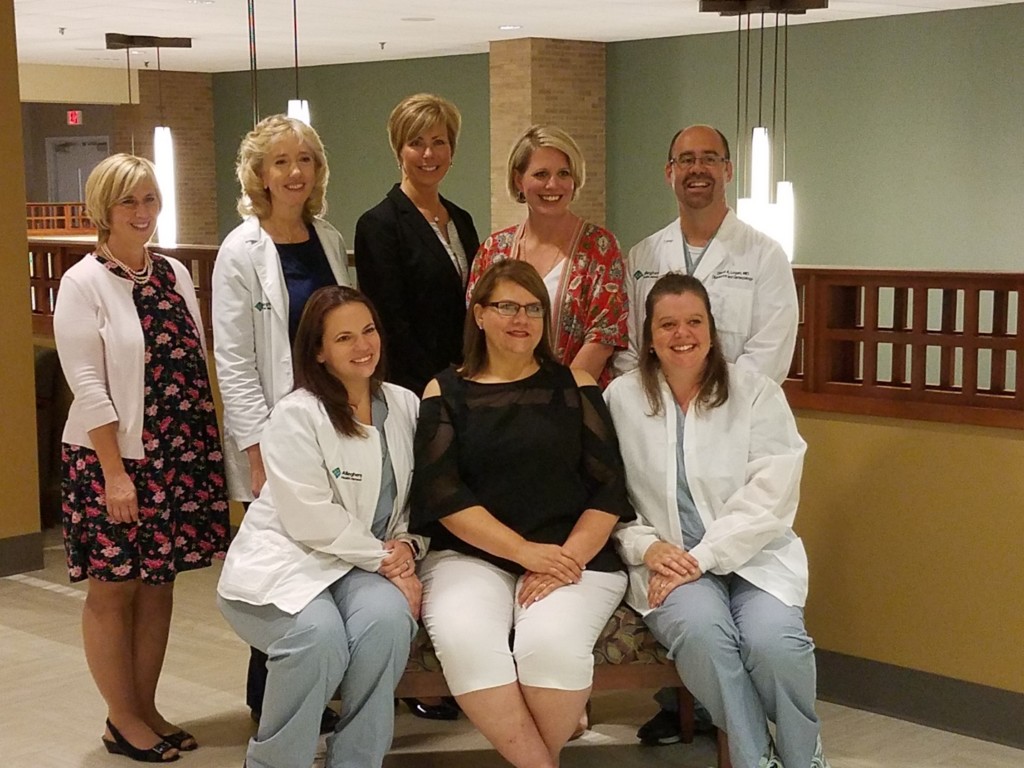
She stressed that mothers aren’t pressured to breastfeed. “We equally support moms who choose to formula feed, empowering and encouraging them as well,” Callaghan said.
However, improving breastfeeding rates is part of earning Keystone 10. “Back when our new birthing center opened, about 40 to 50 percent of our moms were breastfeeding, and almost half of those moms were supplementing with formula,” Kish said. “We’ve improved the rate of exclusive breastfeeding to between 70 and 80 percent today.”
Much of that increase had to do with educating mothers about the health benefits of breastfeeding, along with explaining how to overcome common pitfalls, Kish noted.
“We’ve had a number of mothers who’ve come in saying they were going to formula feed,” she said. “And then they received breastfeeding counseling in the delivery room or right after delivery, and they said they would try it one time. And when they did, they decided to breastfeed instead.”
New moms shouldn’t be afraid to try. Neither should women who’ve not had breastfeeding success in the past, Kish said.
“Of course, moms want their babies to be fed. And, unlike with formula feeding, you can’t see the volume of nourishment that the baby is getting with breastfeeding,” she said. “But we can give mothers that level of assurance and the skills they need to breastfeed with confidence.”
Melissa couldn’t agree more.
“I was a little nervous from the start that I wouldn’t produce enough milk for both Amelia and Elijah,” she said. “But the foundation of knowledge I’ve received at Jefferson and West Penn really helped me continue on confidently.”
A Joyful Journey
All told, Elijah spent 13 days at West Penn before going home. He and Amelia are now approaching nine months old. And they are healthy and growing.

Despite being a health care professional who specializes in labor and delivery, their mother admitted that switching roles and being the patient was an entirely different experience. Especially with two preemies staying in separate hospitals early on.
“You can never fully prepare for a situation like this. It was quite the adventure,” Melissa said. “But the lactation support at Jefferson and West Penn was amazing. Even now with the twins at home, those skills have helped me continue with this journey.”



